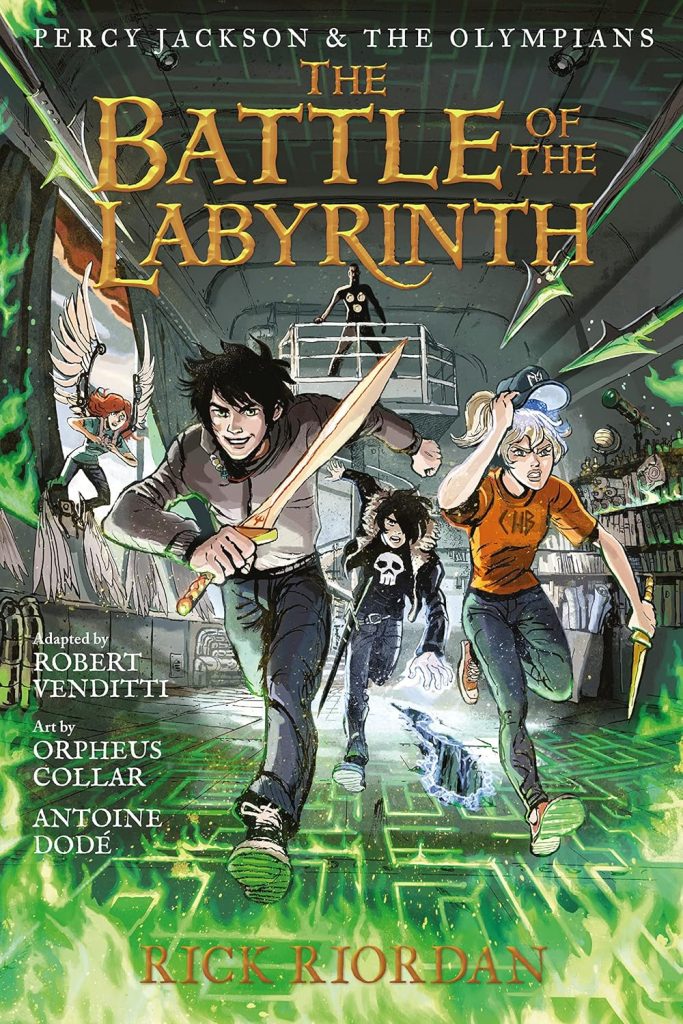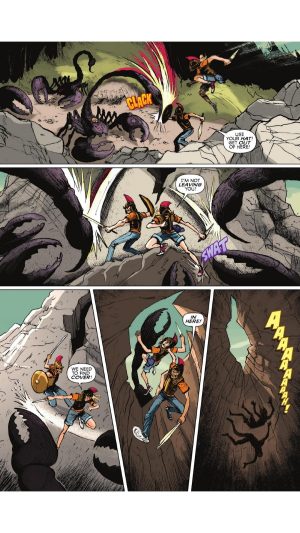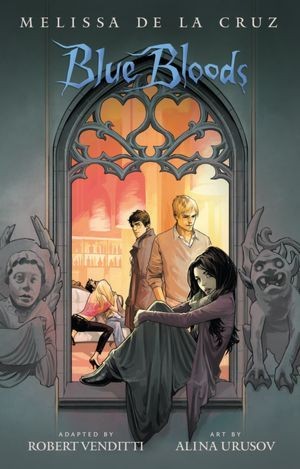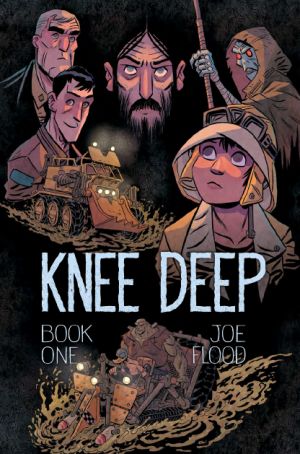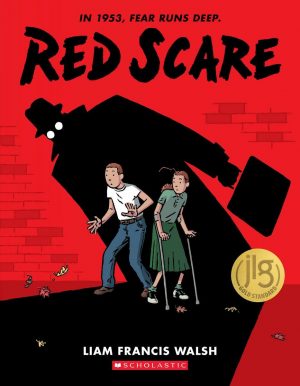Review by Frank Plowright
Flick through this adaptation of The Battle of the Labyrinth and a massive change is immediately apparent. Previous artist Attila Futaki has taken his leave after Percy Jackson and the Titan’s Curse, and instead of his well considered layouts, impressive designs and naturalistic people the series now has a generic cartoon look.
After a brief shock attending his new school, it’s back to summer camp for Percy Jackson, alongside all the other teenagers the ancient gods have sired in recent times. Rick Riordan’s series filters in the trappings of Greek mythology, and this time it’s the labyrinth. It’s no longer confined to a single island, but has grown to stretch beneath the ground across the USA, and anyone who learns to master the confusion could use it as an instant transportation device, theoretically endangering the Camp Half-Blood itself. As before a prophecy sets the tensions, indicating loss, and it’s decided Annabeth will lead a quest for Daedalus, creator of the labyrinth, with Percy, Grover and Tyson for protection.
If people would just give straight answers to straight questions a lot of problems would be avoided, but that’s just Riordan echoing the Greek myths themselves. He’s less constrained when it comes to the character interactions, and offers surprises here, with some not as dark as they may seem, and others more foolhardy.
The Battle of the Labyrinth is another decent adventure, but the ordinary art drags it down. Both Orpheus Collar and Antoine Dodé are credited artists, but without defining particulars, so it’s unknown if they collaborate on all aspects, work on a layouts and finished art basis or are a pencil and ink team. Whatever the truth, the result is so much less imaginative all round when compared with the earlier graphic novel adaptations.
The overarching threat is the possible return of Kronos, which no right-minded person wants to see, and despite Percy and companions overcoming the odds time and again, that’s a threat surviving until Percy Jackson and the Last Olympian.
Robert Venditti’s adaptation is as adept as it has been for previous Percy Jackson graphic novels, but the loss of Futaki is immense.
